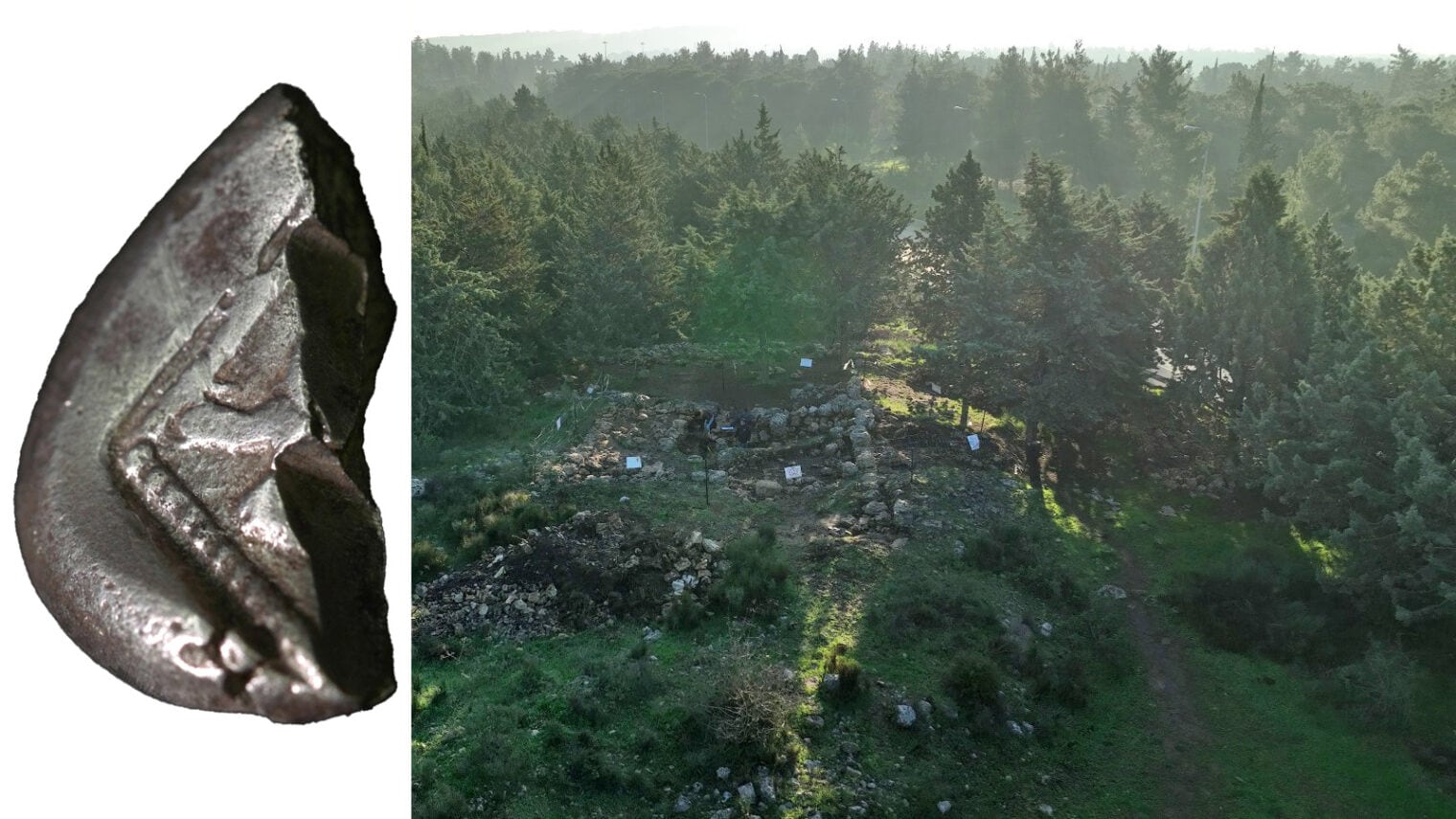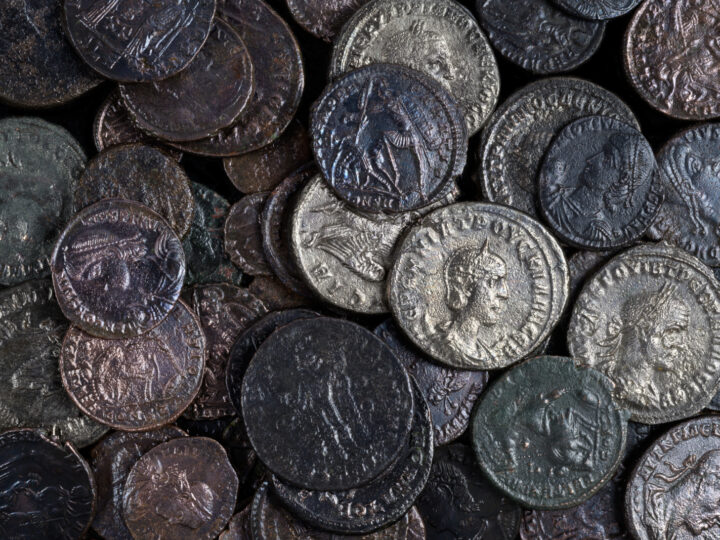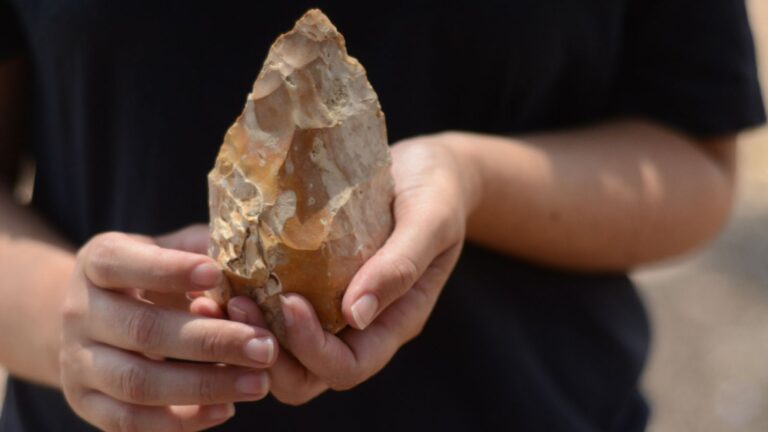It’s no secret that amazing ancient finds are unearthed in Israel in the most bizarre locations and situations. The latest such discovery is a very rare, ancient silver coin dating back some 2,500 years to the Persian period. It was found in excavations ahead of roadworks in the Judean Hills.
The coin, from the sixth to fifth centuries BCE, was found alongside a building from the First Temple period from the seventh century BCE, as well as even earlier evidence for commerce in the form of a shekel weight. The weight would have been used for weighing metals, spices and other commodities.
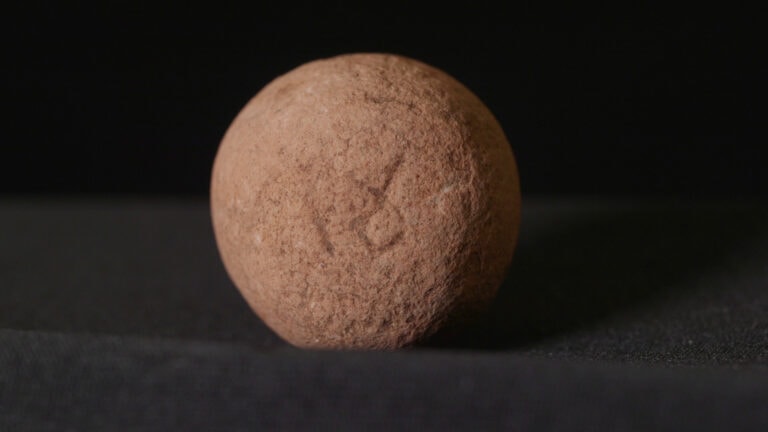
The coin, minted outside of Israel, intentionally split in half to serve as a piece of silver. It was minted with a square stamp embedded into one face. More sophisticated techniques for coins with protruding rather than sunken stamps only appeared later on.
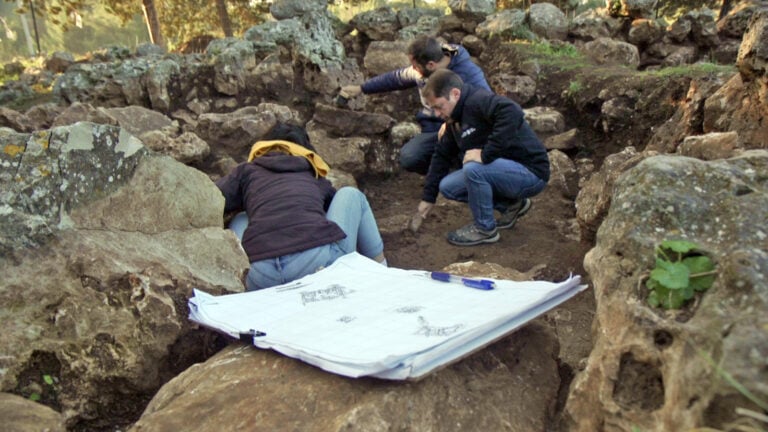
“The coin is extremely rare, joining only half a dozen coins of its type that have been found in archeological excavations in the country,” said Robert Kool, head of the Israel Antiquities Authority Numismatic Department.
“The coin was minted in a period when the use of coins had just begun. The rare find contributes information concerning the way trade was carried out, and the process whereby global commerce moved from payment by weighing silver pieces, to the use of coins.”
Eli Escusido, director of the Israel Antiquities Authority, said, “It is always surprising how important findings are discovered in unexpected places. The tiny coins are a crucial source of information in archaeology. They provide us visual details, inscriptions, and dates. Through a tiny object like a coin, it becomes possible to trace human thought processes and observe that our economic habits have remained largely unchanged for thousands of years – only the technology has changed.”
Fighting for Israel's truth
We cover what makes life in Israel so special — it's people. A non-profit organization, ISRAEL21c's team of journalists are committed to telling stories that humanize Israelis and show their positive impact on our world. You can bring these stories to life by making a donation of $6/month.





